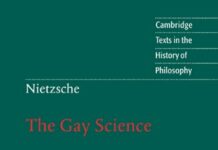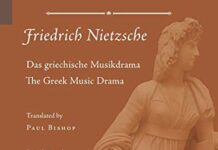
Ebook Info
- Published: 2005
- Number of pages: 352 pages
- Format: PDF
- File Size: 2.55 MB
- Authors: Friedrich Nietzsche
Description
Nietzsche’s late works are brilliant and uncompromising, and stand as monuments to his lucidity, rigour, and style. This volume combines, for the first time in English, five of these works: The Antichrist, Ecce Homo, Twilight of the Idols, Nietzsche contra Wagner, and The Case of Wagner. Here, Nietzsche takes on some of his greatest adversaries: traditional religion, contemporary culture, and above all his one-time hero, the composer Richard Wagner. His writing is simultaneously critical and creative, putting into practice his alternative philosophical vision, which, after more than a hundred years, still retains its startling novelty and audacity. These new translations aim to capture something of the style and rhythm of the original German, so that the reader can get a sense of Nietzsche as not just a philosopher but also a consummate artist, capable of ‘dancing with his pen’, and as untimely as he claims to be.
User’s Reviews
Reviews from Amazon users which were colected at the time this book was published on the website:
⭐the nietzsche philosophy works well for our modern times and is not dated at all this is great views to all those who are their own persons not sheeplike clones who follow the rest of the boring flock think for yourself judge things for yourself that’s how i feel think for yourself find your own views on life don’t be a follower be a leader.
⭐The other translations of Nietzsche’s works I have read from the _Cambridge Texts in the History of Philosophy_ series were all very good, but this particular volume is not the best available translation for the works included. To cite just one example, the translators have chosen on numerous occasions to translate “man” (the German word for “one”) as “you.” The subtitle of _Ecce Homo_, for example, “wie man wird, was man ist,” means “how one becomes what one is” but in this translation it becomes “how to become what you are” (p. 69) or “how you become what you are” (p. 96). In addition to the lack of consistency, this rendering has two problems. It lacks both fidelity to the exact meaning of the original text, and fidelity to the style of the original text. My suspicion is that the translator (Judith Norman) has developed a timid habit of avoiding any form of expression that might be considered at all “elevated,” since this might make her appear elitist and offend her democratic sensibility. But shouldn’t a translator be faithful to the sensibility of the original text, rather than to his or her own political agenda? Nietzsche’s style is nothing if not elevated. The sort of vernacular speech that substitutes “you” for “one” is entirely foreign to this style.All three of these posthumous works are available in far superior translations by Walter Kauffman. The translations of _Twilight of the Idols_ and _The Antichrist_ are published in _The Portable Nietzsche_ (1954). _Ecce Homo_ is published in _Basic Writings of Nietzsche_ (1966).
⭐Maybe you’re an etymologist, a philologist, a grammarian. If so, you’ll probably hate this translation because it doesn’t capture the essence of whatever you think is the pure translation of the work of the man who slayed God to become a god. I have no use for people like you.Nietzsche said something to the effect of writing simply and plainly in order to be understood. People who write with ridiculous affectations do so in order to signal their status as an intellectual and hide the fact that their thoughts lack profundity. What am I getting at? Kaufmann’s translations were done in the 1950s or so. In the brief period between then and now, American English has already evolved. Watch any black and white film and compare the actors’ manner of speaking with those in a modern film. Obviously, they’re very different. Language is not just style; it’s contextual. Without capturing the context of meaning, it may as well be in a foreign language.Again, I’m speaking as a layman for the benefit of other laymen.I can’t speak to this entire volume, but I’m reading Twilight of the Idols now in this Cambridge translation. It is far superior to Kaufmann’s as far as readability is concerned. The critics will complain that this Ridley/Norman translation doesn’t capture some original essence. If you want original, learn German and read it in German. I bet Germans would have a hard time reading the original texts.Bottom line:1. languages change; modern translations are more readable.2. pedants always proclaim that the old is better because they’re aristocratic chalatans with too much free time who don’t understand their status as reviewers means nothing. They intentionally or unintentionally trick people into taking unnecessarily difficult tasks.Here’s an excerpt from Twilight for you to compare so you can make up your own mind.From Cambridge (Ridley/Norman) – Twilight of the Idols, p. 164-165″I have shown how Socrates could be repulsive: which makes it even more important to explain the fact that he fascinated. — That he discovered a new type of agon, that he was its first fencing master in the noble circles of Athens — this is one thing.”From Kaufmann, p. 476 (The Portable Nietzsche)”I have given to understand how it was that Socrates could repel: it is therefore all the more necessary to explain his fascination. That he discovered a new kind of agon, that he became its first fencing master for the noble circles of Athens, is one point.”—-If you’re a layman that wants to read and understand Nietzsche without the added layer of obfuscation that comes about from reading awkward sentences, get this translation. I am speaking only about Twilight; I cannot vouch for the other translated books, which may or may not be good, as I have not read them. If you want to be an academic blowhard who wants to add an unnecessary layer of difficulty to Nietzsche’s already difficult concepts, then by all means, get the Kaufmann translations.
⭐The Cambridge Texts in the History of Philosophy yet again struck gold, enshrining history’s greatest thinkers in pre-eminently handsome texts, robust and readable translations, and scholarly and timely commentary and introductory exegesis.Despite Nietzsche’s admonition greeting us in the very first prefatory page, this book belongs not to the few, but to all seeking meaning beyond society’s regurgitated paradigms and ossified constrictions.A philosopher-bibliophile’s “must have”!
⭐If you don’t mind loose translations or even prefer them, the Cambridge UP translation is for you. If you want an accurate translation, go with Hollngsdale. Here is a example from the preface to The Anti-Christ:Dies Buch gehört den wenigsten. Vielleicht lebt selbst noch keiner von ihnen. Es mögen die sein, welche meinen Zarathustra verstehen: wie dürfte ich mich mit denen verwechseln, für welche heute schon Ohren wachsen? — Erst das Übermorgen gehört mir. Einige werden posthum geboren. “Erst das Übermorgen gehört mir” means “Only the day after tomorrow belongs to me.” That is how Hollingsdale translates it.However, the Cambridge UP translator renders “Erst das Übermorgen gehört mir” as “my day won’t come until the day after tomorrow.” That is only not a paraphrase; more crucially, it misses the repetition of “gehört” (Dies Buch gehört . . . Übermorgen gehört . . . ).I agree with other Amazon reviewers of the Cambridge UP translation that this volume is an exception; that is, the other volumes are good, but this one is not. Luckily, we have the Hollingsdale.
Keywords
Free Download Nietzsche: The Anti-Christ, Ecce Homo, Twilight of the Idols: And Other Writings (Cambridge Texts in the History of Philosophy) in PDF format
Nietzsche: The Anti-Christ, Ecce Homo, Twilight of the Idols: And Other Writings (Cambridge Texts in the History of Philosophy) PDF Free Download
Download Nietzsche: The Anti-Christ, Ecce Homo, Twilight of the Idols: And Other Writings (Cambridge Texts in the History of Philosophy) 2005 PDF Free
Nietzsche: The Anti-Christ, Ecce Homo, Twilight of the Idols: And Other Writings (Cambridge Texts in the History of Philosophy) 2005 PDF Free Download
Download Nietzsche: The Anti-Christ, Ecce Homo, Twilight of the Idols: And Other Writings (Cambridge Texts in the History of Philosophy) PDF
Free Download Ebook Nietzsche: The Anti-Christ, Ecce Homo, Twilight of the Idols: And Other Writings (Cambridge Texts in the History of Philosophy)




